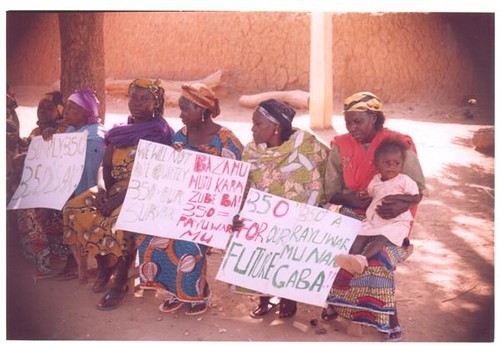Economic Overview of Nigeria in 2024
Nigeria’s economic landscape in 2024 is characterized by cautious optimism and ongoing efforts to diversify beyond oil dependence. The country continues to face challenges such as inflation, infrastructure deficits, and political uncertainties, but recent reforms and investments in technology, agriculture, and manufacturing sectors are fostering potential growth. As Nigeria navigates its path forward, the resilience of its large population and emerging market opportunities remain key drivers of its economic outlook for the year.
GDP Growth and Key Sectors
As of 2024, Nigeria’s economy continues to be one of the largest in Africa, showcasing resilience amidst global economic fluctuations. The country’s GDP growth has experienced steady improvement, driven by diverse sectors and recent reforms aimed at enhancing economic stability and development.
In 2024, Nigeria’s GDP growth is projected to be around 3.2%, reflecting a moderate but consistent expansion compared to previous years. This growth is supported by improved oil prices, increased agricultural outputs, and a burgeoning services sector. The government has also implemented policies to diversify the economy and reduce dependence on oil exports.
- Oil and Gas Sector: Remains a crucial component of Nigeria’s economy, contributing significantly to national revenue and export earnings. Continued investments in upstream and downstream activities are enhancing production capacity.
- Agriculture: A key driver of employment and food security, with improved mechanization and access to markets boosting productivity.
- Services Sector: Growing rapidly, especially in telecommunications, financial services, and entertainment, contributing substantially to GDP and employment.
- Manufacturing and Industry: Experiencing gradual growth through government incentives and private sector investments aimed at boosting local production.
Inflation and Currency Exchange Rates
The economic overview of Nigeria in 2024 presents a mixed landscape characterized by gradual recovery and ongoing challenges. The nation continues to strive for sustainable growth amid fluctuating global commodity prices and internal economic reforms. Inflation rates remain slightly elevated, impacting consumer purchasing power and overall economic stability. Additionally, the currency exchange rates are experiencing moderate volatility influenced by external and internal factors, affecting both imports and exports.
- Inflation Rate: Nigeria’s inflation rate in 2024 is estimated to hover around 12-14%, driven by increases in food and fuel prices, supply chain disruptions, and inflationary pressures from domestic and international markets.
- Currency Exchange Rate: The Nigerian Naira has seen some depreciation against major currencies like the US dollar and Euro, with the exchange rate averaging around 750-800 Naira per US dollar. This fluctuation is influenced by inflation trends, foreign investment inflows, and forex reserves management.
- Economic Growth: Nigeria’s GDP growth rate is projected to be approximately 3-4%, supported by sectors such as agriculture, telecommunications, and services, although challenges in oil revenue and external shocks persist.
- Policy Measures: The Central Bank of Nigeria continues to implement measures to stabilize the currency and curb inflation, including adjusting interest rates and managing forex reserves, aiming for a balanced economic environment.
Foreign Investment Trends
In 2024, Nigeria’s economy continues to demonstrate resilience amidst global economic fluctuations, with steady growth driven by diverse sectors such as agriculture, technology, and manufacturing. The country is making significant strides in improving its macroeconomic stability, although challenges like inflation and infrastructural deficits persist. Foreign investment trends in Nigeria are characterized by renewed interest from international investors seeking opportunities in its burgeoning markets and natural resources.
- Increasing foreign direct investments (FDI) in sectors like technology, telecommunications, and renewable energy.
- Continued interest from China, Europe, and the United States in Nigeria’s oil, gas, and mineral sectors.
- Growing venture capital activity supporting startups in fintech, agritech, and e-commerce.
- Government initiatives aimed at improving the ease of doing business and creating investment incentives.
- The Nigerian government has launched several reforms to attract more foreign capital, including tax incentives and regulatory simplifications.
- Despite global uncertainties, Nigeria remains an attractive destination due to its large consumer market and strategic geographic location.
- Challenges such as currency fluctuations and inconsistent policy enforcement remain, but they are gradually being addressed.
Unemployment Rate and Job Market
The economic overview of Nigeria in 2024 reflects a resilient yet challenging landscape. The country continues to experience steady growth driven by sectors such as agriculture, telecommunications, and oil, despite global economic uncertainties. Efforts to diversify the economy have shown signs of progress, though dependence on oil exports still influences overall economic stability.
The unemployment rate in Nigeria in 2024 remains high, hovering around 33%, according to recent government reports. Youth unemployment is particularly alarming, with a significant portion of Nigeria’s young population unable to find sustainable employment. This situation is compounded by infrastructural deficits, security challenges, and skills mismatches within the labor market.
The job market in Nigeria is characterized by informal employment dominating the economy, with many working in subsistence agriculture and small-scale trade. Formal sector jobs are scarce and competitive, often requiring specialized skills that many job seekers lack. The government and private sector are making efforts to create more employment opportunities through entrepreneurship programs, technological innovations, and investment in education, but progress remains gradual. Overall, Nigeria’s employment landscape in 2024 continues to grapple with high unemployment and a need for comprehensive structural reforms to foster inclusive economic growth.
Political Climate and Governance
The political climate and governance in Nigeria today are shaped by a complex interplay of historical, economic, and social factors. As one of Africa’s largest and most influential nations, Nigeria faces ongoing challenges related to political stability, leadership, and effective policy implementation. Understanding the current dynamics within Nigeria’s political landscape is essential to grasp how governance is navigating the nation’s path toward development and stability.
Federal Leadership and Policy Changes
The political climate in Nigeria remains dynamic, characterized by ongoing debates over governance, federal leadership, and policy reforms. Recent developments indicate a push towards greater decentralization of power, aiming to empower state and local governments to address regional needs more effectively. Federal leadership continues to grapple with balancing national unity and regional autonomy, often resulting in shifts in policy priorities. Policy changes are frequently influenced by the current administration’s focus areas, such as economic diversification, anti-corruption measures, and security improvements. These changes reflect Nigeria’s attempt to navigate complex political landscapes while striving for sustainable development and stability.
Upcoming Elections and Political Stability
The political climate in Nigeria remains dynamic, with ongoing debates surrounding governance and leadership. Recent developments have highlighted the importance of transparency and accountability in public institutions as citizens expect more effective management of resources and policy implementation. Upcoming elections are poised to be pivotal moments, with political parties mobilizing support and candidates preparing campaigns that focus on economic growth, security, and social welfare. While there is considerable enthusiasm among voters, concerns about electoral integrity and political violence persist. Overall, Nigeria’s political stability continues to be challenged by these internal tensions, but steady efforts toward democratic processes and civic engagement aim to foster a more resilient governance framework for the future.
Security Situation and Regional Conflicts
The political climate in Nigeria remains dynamic, characterized by ongoing efforts toward democratic consolidation amid challenges such as political rivalries, corruption, and governance issues. The government strives to implement reforms, but public trust varies, and elections continue to be pivotal moments that influence national stability. Security remains a major concern, with threats from insurgent groups, communal conflicts, and criminal activities affecting various regions. The security agencies are actively engaged in counter-terrorism operations, particularly against Boko Haram in the northeast, while vigilante groups and military efforts address banditry and herder-farmer clashes. Regional conflicts, especially within the Sahel and neighboring countries, often spill over into Nigeria, exacerbating instability and complicating peace-building efforts. Overall, Nigeria’s governance and security landscape are at a critical juncture, requiring sustained commitment to reforms and regional cooperation to ensure long-term stability.
Social and Cultural Developments
In Nigeria today, social and cultural developments continue to shape the nation’s vibrant identity. As the country navigates modern influences and traditional values, evolving trends in communication, entertainment, and community engagement reflect the dynamic nature of Nigerian society. These developments foster increased connectivity, cultural preservation, and adaptation to global changes, highlighting Nigeria’s unique position on the African continent.
Population Demographics and Urbanization
In present-day Nigeria, social and cultural developments are marked by a rich diversity of ethnic groups, languages, and traditions, reflecting the country’s complex history. Urban centers like Lagos and Abuja are experiencing rapid growth, signifying significant urbanization driven by economic opportunities and rural-to-urban migration. Population demographics reveal a youthful country, with a large proportion of the population under 30 years old, contributing to a dynamic labor force and vibrant cultural scenes. Despite progress, challenges such as overcrowding, infrastructure strain, and social inequalities persist as Nigeria continues to navigate its path toward sustainable urban and social development.
Education and Healthcare Improvements
In contemporary Nigeria, significant advances have been made in social and cultural development, reflecting a dynamic blend of tradition and modernity. Efforts to promote cultural heritage, arts, and indigenous practices have strengthened national identity and fostered greater appreciation for diverse ethnic backgrounds. Education in Nigeria has seen notable improvements through increased access to schools, curriculum reforms, and initiatives aimed at reducing illiteracy. Efforts to expand enrollment at various levels, from primary to tertiary education, aim to equip the youth with necessary skills for development. Healthcare systems are also undergoing modernization, with investments in medical infrastructure, vaccination programs, and health awareness campaigns. These developments contribute to improving the overall health standards, reducing mortality rates, and ensuring better quality of life for Nigerian citizens. As Nigeria continues to evolve, social and cultural cohesion alongside enhanced education and healthcare services remain pivotal to its growth and stability.
Cultural Events and Festivals
In contemporary Nigeria, social and cultural developments are flourishing as the country continues to embrace its diverse heritage. The nation sees a dynamic blend of traditional practices and modern influences, fostering a vibrant cultural landscape. Major cultural events and festivals, such as the Lagos Carnival, the Argungu Fishing Festival, and the Osun-Osogbo Festival, attract both locals and international visitors, showcasing Nigeria’s rich heritage. These celebrations serve as important platforms for promoting unity, celebrating indigenous traditions, and supporting local arts, music, and dance. As Nigeria navigates its current times, its cultural festivals remain vital in strengthening communal bonds and expressing national identity.
Technological Innovation and Digital Transformation
In today’s rapidly evolving world, technological innovation and digital transformation are crucial drivers of progress, especially in countries like Nigeria. As Nigeria navigates the current technological landscape, embracing digital solutions is vital for economic growth, improved governance, and enhanced quality of life. These advancements are shaping the nation’s future, fostering new opportunities and revolutionizing traditional industries across the country.
Growth of Tech Startups
In current Nigeria, technological innovation and digital transformation are rapidly reshaping the economic landscape, creating new opportunities for growth and development. The rise of tech startups across cities such as Lagos, Abuja, and Port Harcourt underscores the country’s increasing embrace of digital solutions in sectors like finance, agriculture, healthcare, and education. These startups are leveraging advancements in mobile technology, artificial intelligence, and e-commerce to address local challenges while attracting both domestic and foreign investment. The growth of the tech ecosystem in Nigeria is further supported by government initiatives, innovation hubs, and venture capital funding, positioning the country as a burgeoning tech hub in Africa. This digital transformation not only enhances access to services but also fosters entrepreneurship and job creation, contributing significantly to Nigeria’s economic resilience amid global shifts. As Nigeria continues to embrace technological progress, its potential for innovation-driven growth remains promising, signaling a new era for tech startups and digital industries in the region.
Internet and Mobile Penetration
In contemporary Nigeria, technological innovation and digital transformation are rapidly reshaping the socio-economic landscape. The increasing penetration of the internet and mobile technologies has significantly enhanced connectivity, enabling both individuals and businesses to access new opportunities and services. Nigeria’s strides in mobile technology have contributed to a surge in digital financial transactions, e-commerce, and online education, fostering economic growth and social development. As more Nigerians adopt smartphones and internet-enabled devices, the country is witnessing a digital revolution that is bridging gaps in infrastructure and information dissemination. This technological advancement is crucial for Nigeria’s goal of achieving sustainable development and positioning itself competitively in the global digital economy.
Government Initiatives for Digital Economy
In the current context of Nigeria, technological innovation and digital transformation are playing a crucial role in shaping the country’s economy. The Nigerian government has launched various initiatives aimed at fostering a digital economy, including the National Digital Economy Policy and Strategy (NDEPS), which seeks to enhance digital infrastructure, promote digital literacy, and support local technology startups. These efforts are designed to boost economic growth, improve governance, and create new opportunities for Nigerian entrepreneurs and citizens alike.
Environmental and Climate Issues
Environmental and climate issues are critically impacting Nigeria today, presenting significant challenges to the nation’s health, agriculture, and overall sustainable development. As climate change accelerates, Nigeria faces rising temperatures, unpredictable weather patterns, and environmental degradation, all of which threaten the well-being of its people and ecosystems. Addressing these urgent issues requires concerted efforts at both governmental and community levels to implement sustainable solutions and protect the country’s future.
Impact of Climate Change on Agriculture
Environmental and climate issues are increasingly affecting Nigeria, with climate change having a significant impact on agriculture. Rising temperatures, irregular rainfall patterns, and prolonged droughts are creating challenges for farmers, reducing crop yields and threatening food security. These changes disrupt traditional farming cycles and increase the prevalence of pests and diseases, further complicating agricultural production. As a result, many farmers face financial instability and subsistence hardships. Addressing these issues requires urgent adaptation strategies, sustainable farming practices, and effective climate policies to safeguard Nigeria’s agricultural future in the face of ongoing climate change.
Renewable Energy Projects
Environmental and climate issues are increasingly urgent concerns in Nigeria, as the country faces challenges such as deforestation, pollution, and climate change impacts like flooding and desertification. These issues threaten both public health and biodiversity, necessitating immediate action to protect the environment. Renewable energy projects are emerging as vital solutions to reduce Nigeria’s dependence on fossil fuels, lower greenhouse gas emissions, and promote sustainable development. Initiatives like solar power farms, small-scale solar home systems, and wind energy projects are gaining momentum across the country. With its abundant sunlight and wind resources, Nigeria has significant potential to harness renewable energy sources to power homes, industries, and rural communities, thereby fostering economic growth and environmental resilience. Efforts by government agencies, private investors, and international partners are aligned toward advancing renewable energy infrastructure and raising awareness about sustainable practices. These initiatives represent a hopeful pathway toward addressing Nigeria’s environmental and climate challenges while supporting a cleaner, greener future for the nation.
Conservation and Wildlife Protection Efforts
Environmental and climate issues are increasingly becoming critical concerns in Nigeria, impacting both natural ecosystems and human livelihoods. Rapid urbanization, deforestation, oil exploration, and pollution have contributed to climate change, loss of biodiversity, and environmental degradation across the country. These challenges threaten agricultural productivity, water resources, and the health of vulnerable communities.
In response, numerous conservation and wildlife protection efforts have been initiated by the Nigerian government, local communities, and international organizations. National parks such as Yankari, Cross River, and Gashaka Gumti serve as vital refuges for Nigeria’s diverse flora and fauna. Additionally, wildlife conservation programs aim to curb illegal poaching and the illegal wildlife trade, which threaten species like elephants, chimpanzees, and pangolins.
Efforts also include reforestation projects, environmental awareness campaigns, and policies to promote sustainable practices among industries and local populations. The community-based conservation approach encourages local involvement in protecting natural resources, fostering a sense of ownership and responsibility. Despite these efforts, continued support and stronger enforcement of environmental laws are necessary to mitigate the current ecological crisis in Nigeria.





0 Comments